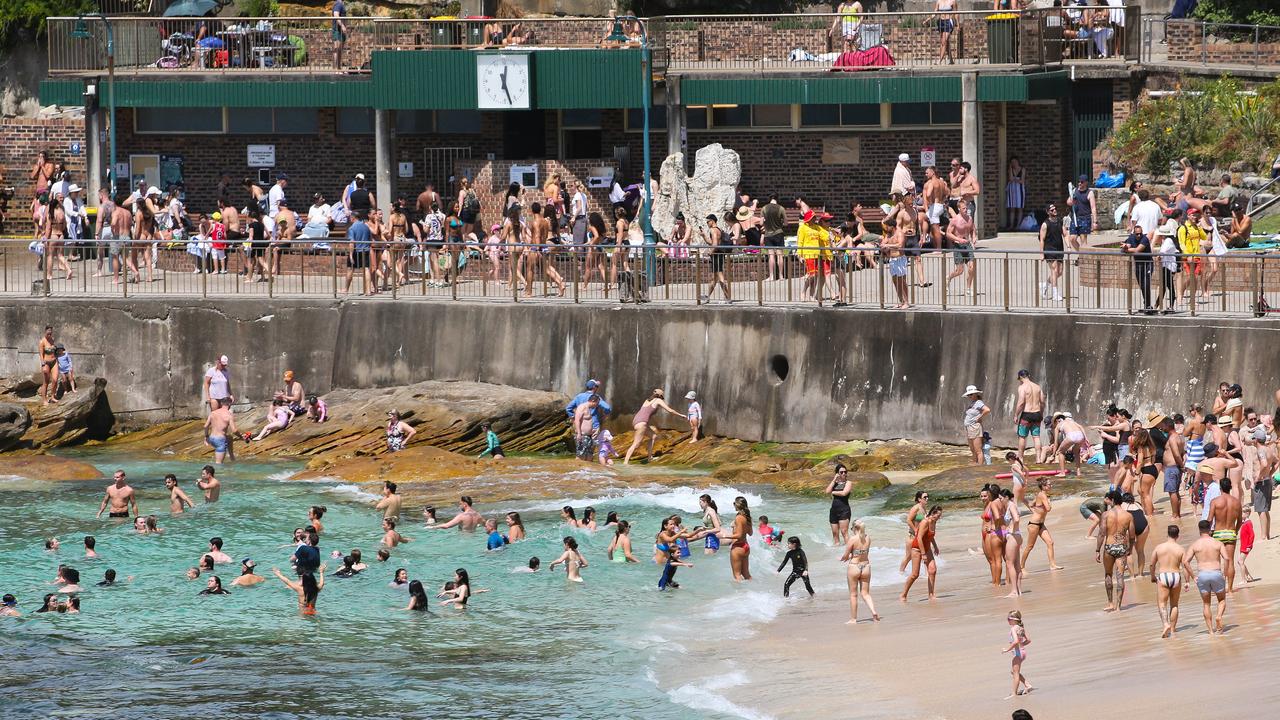Grim scenes at Aldi as snow gear overflows Special Buys shelves
Once upon a time if you blinked, you’d miss Aldi’s biggest sales event of the year. Now — product sits limp and lifeless weeks after the famed event.

In years gone past, blink and you’d be too late to snap up a snow jacket or a ski glove at Aldi’s famous snow gear sale.
By the time the first snow flake had fallen, shelves would be empty and shoppers decked out in their fresh kits ready for the season ahead.
Dubbed each and every year as one of the biggest sale events of on the calender, the discount retailer rolled out all the stops for the annual Aldi Snow sale — including just last month for the 2024 season.
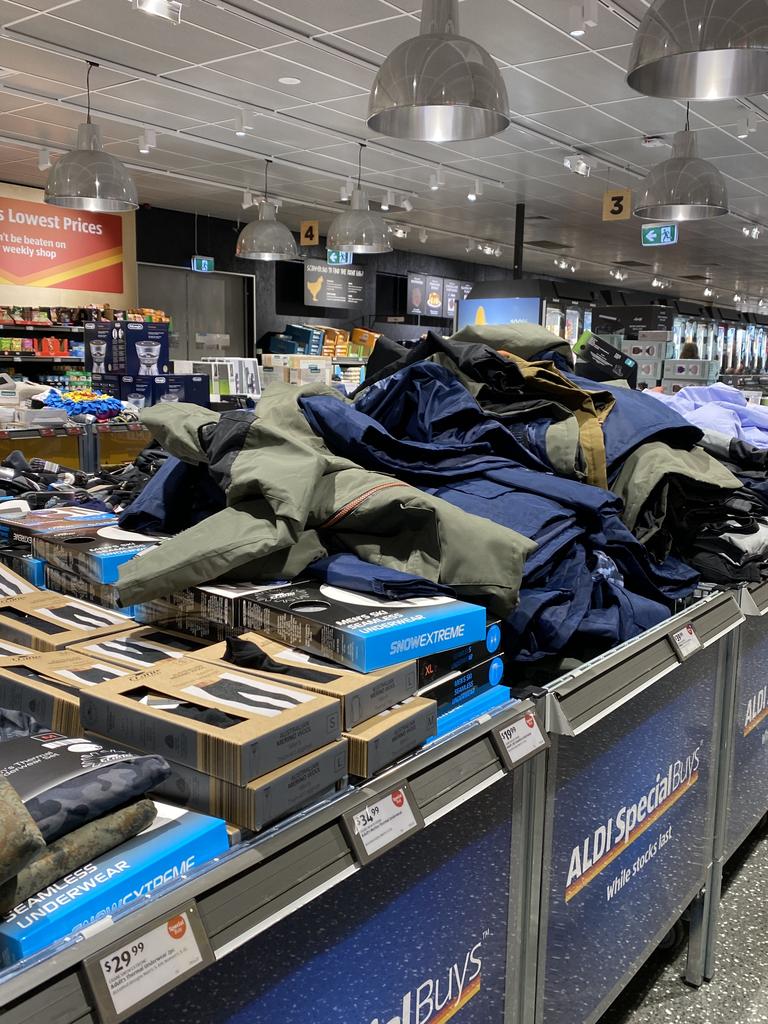
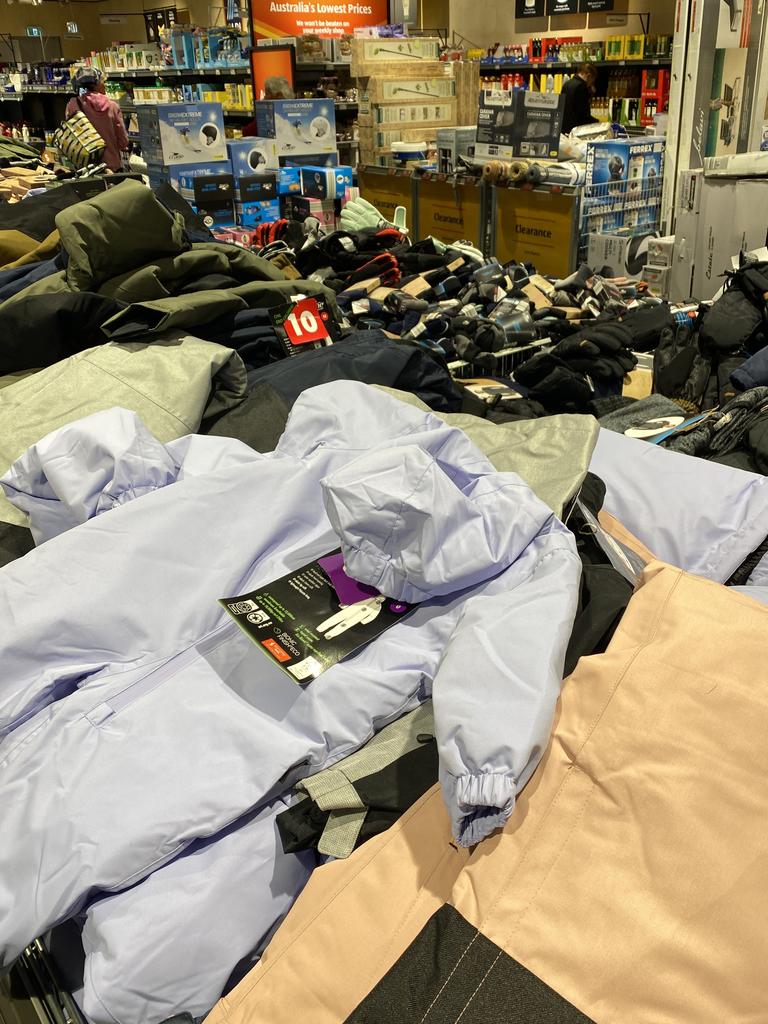
But in a sign of the times where belts are tightening across the country and cost-of-living pressures mount — a scene witnessed at stores coast to coast signifies just how grim things are getting.
Piles of ski jackets spill from the aisles at Aldi in McGraths Hill, with mountains of boxes of boots destined for the slopes instead collecting dust on the shelf.
Waterproof gloves and woollen underlays sit tossed aside, making way for the hot new run of “special buys” product rolled out on Wednesday morning and again the following weekend.
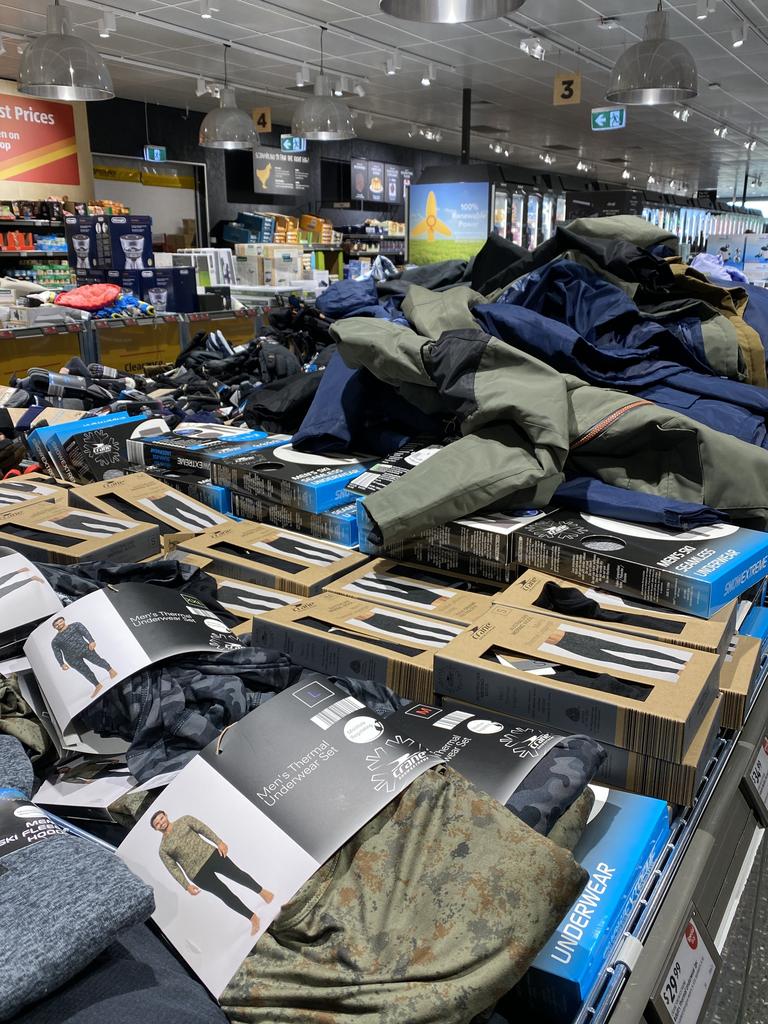
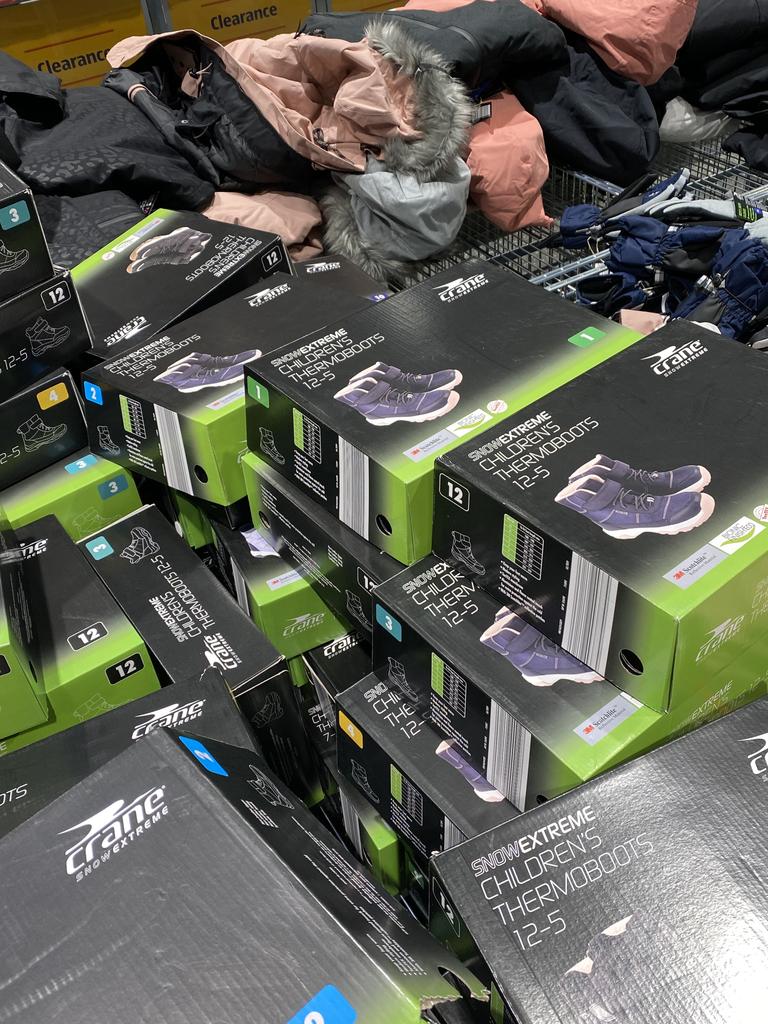
In Marrickville, piles of jackets, pants and beanies take up shelf space while more boxes of boots and socks wait to be purchased.
Normally, two weeks after the famed event’s kick-off you’d be lucky to snap up a pair of gloves.
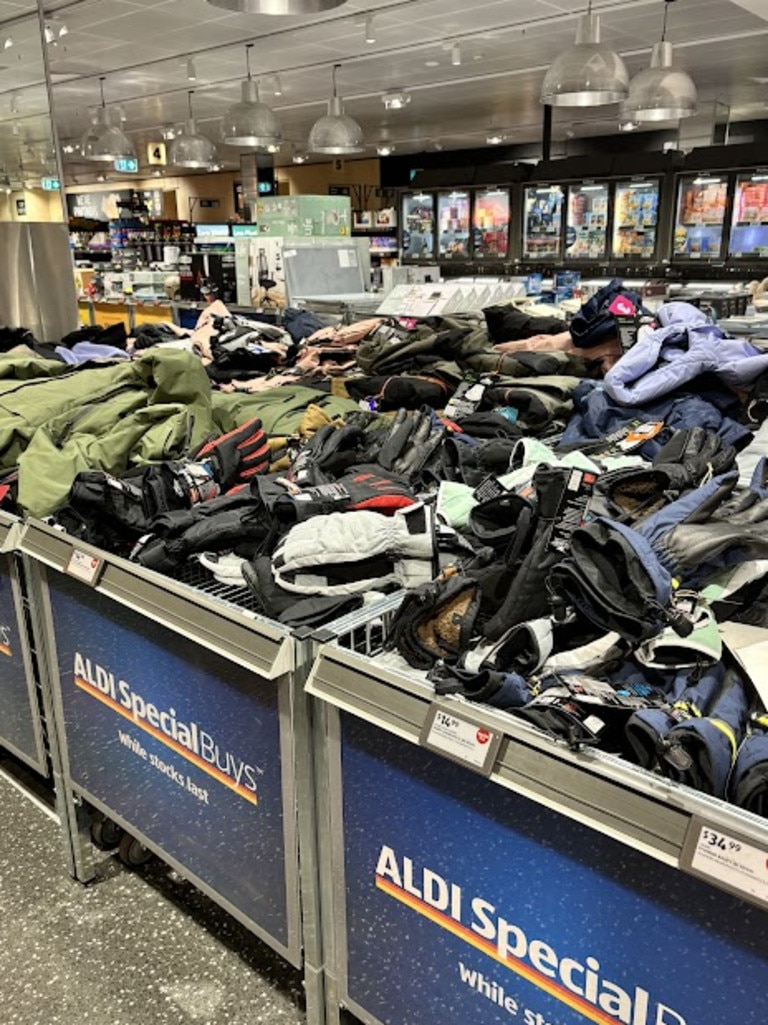
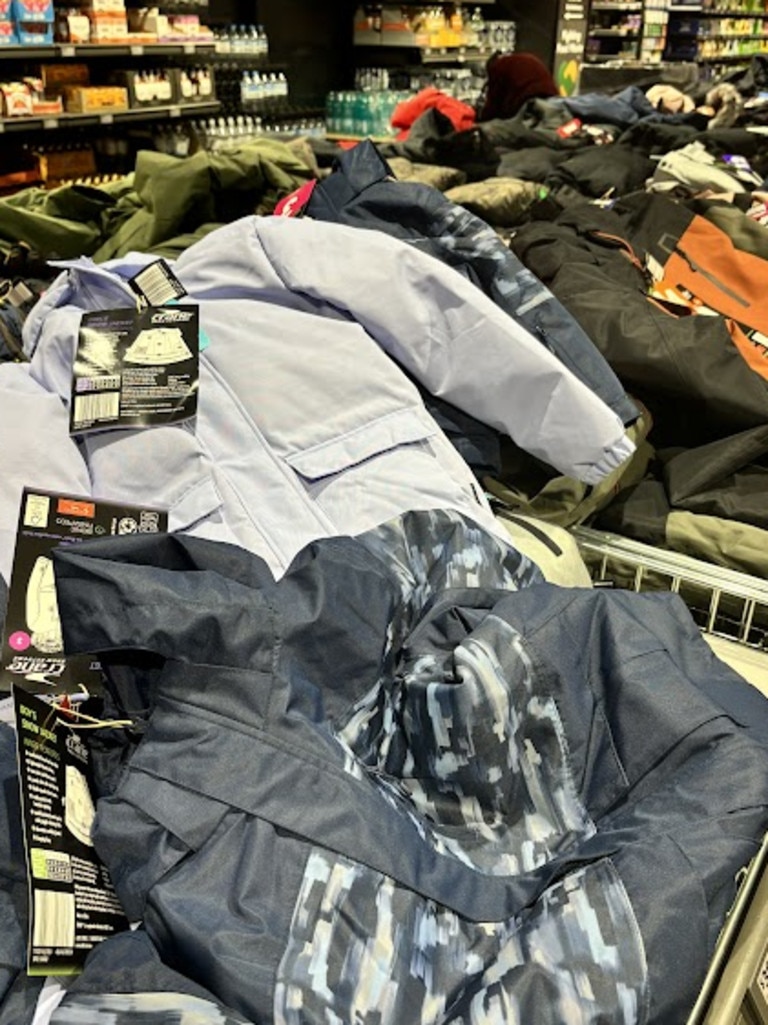
A video posted to TikTok by user amibhaloshami revealed a similar scene at another store on the east coast, with mountains of clothing and snow-related product spilling from the shelves.
“Aldi Winter Sale 3 days later … over stocked,” the video that’s been viewed more than 25k times was captioned.

“Not realising people are not planning a snow trip this year … who has the money to do that?” the user wrote.
Commenters were quick to agree that this year, stock had remained idle despite the winter season officially here.
“I remember when snow day was absolute madness at Aldi,” one posted.
“I was surprised to see so much stock a few days after launch,” the original poster replied.
“They should donate the extras to the poor regional towns in the mountains that get so cold that these are *inside the house* clothes,” another added.
“Possibly because a week in the snow is insanely expensive and people either can’t afford or would rather spend that money going overseas,” a third replied.
A spokesperson for Aldi Australia told news.com.au: “Our Snow Gear sale is a much anticipated Special Buy range. There is still stock across some lines in some stores. Customers looking for high quality winter apparel should use our online stock checker to see what’s still available at their closest store.”
It’s no secret that when it comes to taking a holiday at any time of year — but especially in our alpine regions over winter — travellers will need a fair whack of cash.
To get to the slopes requires a significant road trip from Sydney or Melbourne — with fuel, food and accommodation quickly blowing up the budget. And that’s not even factoring in a daily lift pass and snow gear hire or purchase if you choose to hit the slopes.
According to a new report from Commonwealth Bank, households have drastically cut back on non-essential spending in recent months.

The nation’s biggest bank says household spending in April was 1 per cent lower than in March and had only increased by 2.6 per cent over the previous 12 months – although lower than inflation, which currently sits at 3.6 per cent.
According to the report, renters were found to have cut back the most on spending, while splashing the cash among people who own their home without a mortgage was found to have increased far faster than inflation.
According to data from Tourism Research Australia, the cost of living pressures are encouraging Australians to travel closer to home, on tighter budget and have shorter holidays too.
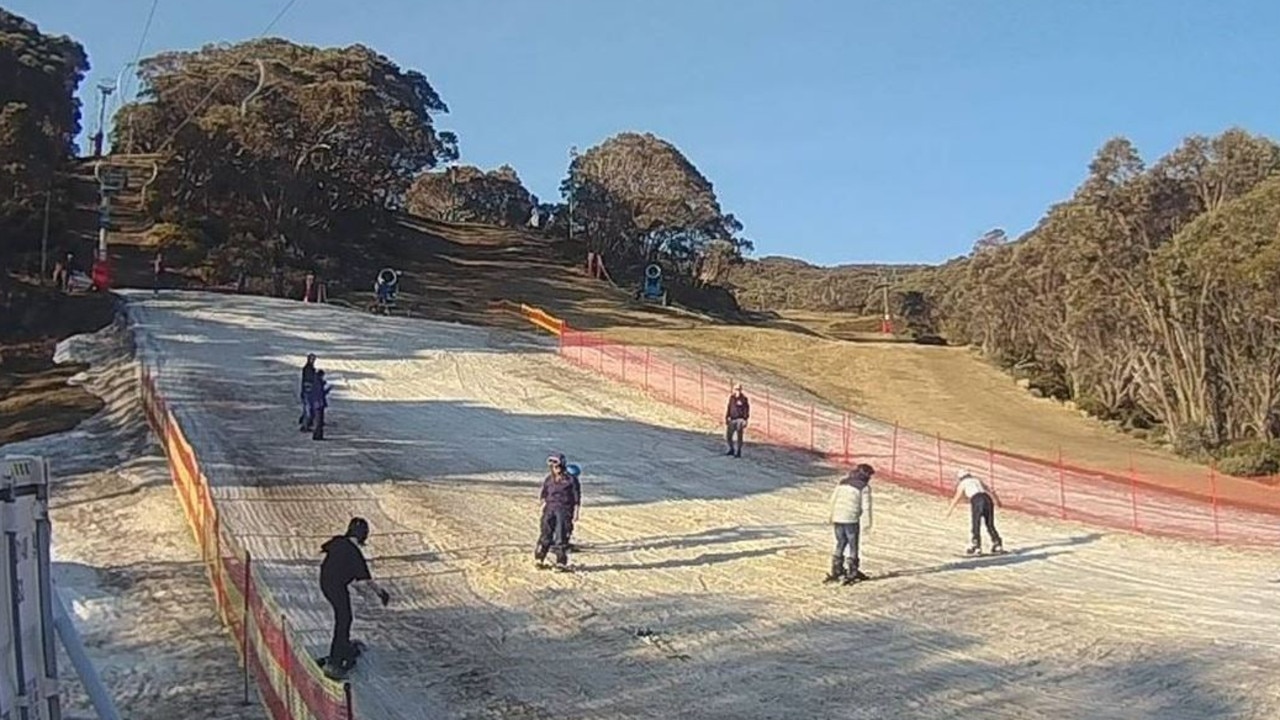
But in recent times, one of the other big deterrents for snow-lovers has been the underwhelming conditions — and if the recent report in to climate change is anything to go by, holidays by the slopes could become a mere memory.
According to the research by the Australian National University — the length of ski seasons will be slashed by one-third by 2030 even if greenhouse gas emissions are cut radically.
New South Wales fields Charlotte Pass, Perisher and Thredbo, and Victoria’s Falls Creek and Mt Hotham fare better than others under the modelling, but places like Ben Lomond, Lake Mountain and mounts Baw Baw, Buller, Selwyn and Stirling will be hit hardest.
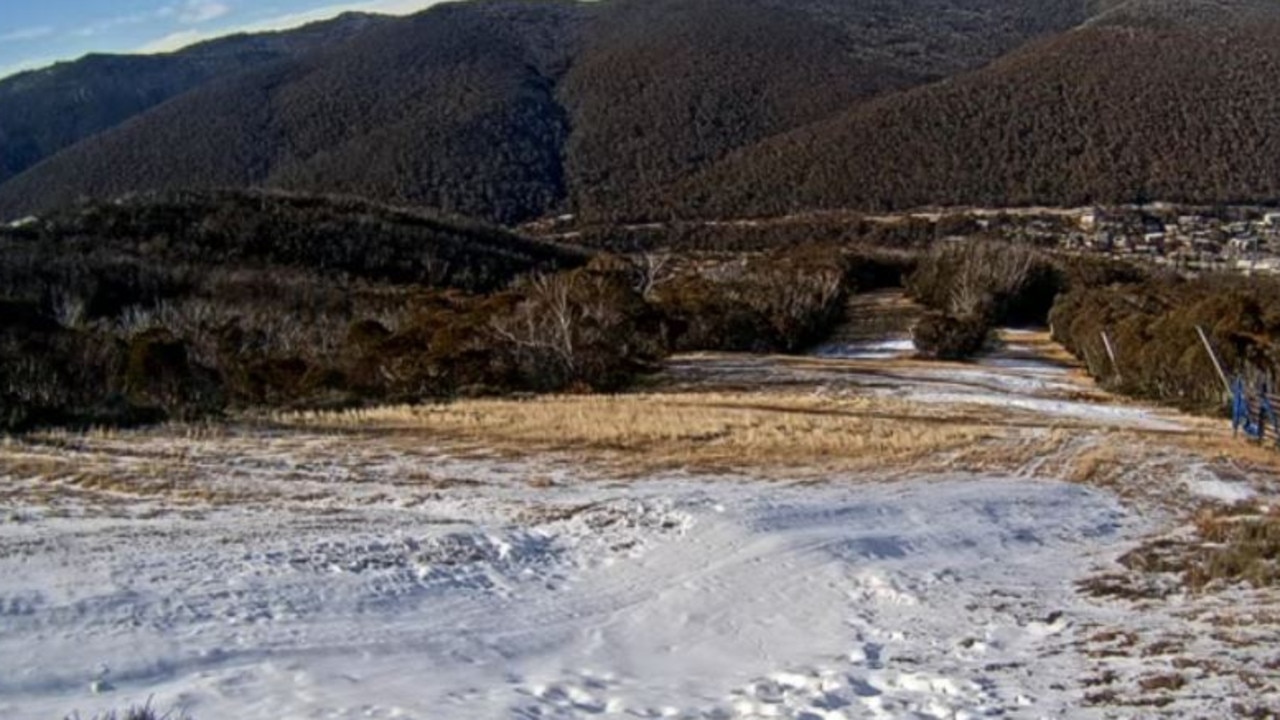
Broadly speaking, the roughly 100-day resort season length will decline by 16-18 days by the 2030s, regardless of emissions.
Last year alone, some fields were forced to close early with Australia enduring one of the warmest winters on record.
Traditionally, Australian ski resorts try to stay open until the first weekend in October.
News.com.au contacted Thredbo, Perisher and Mt Hotham for comment.





